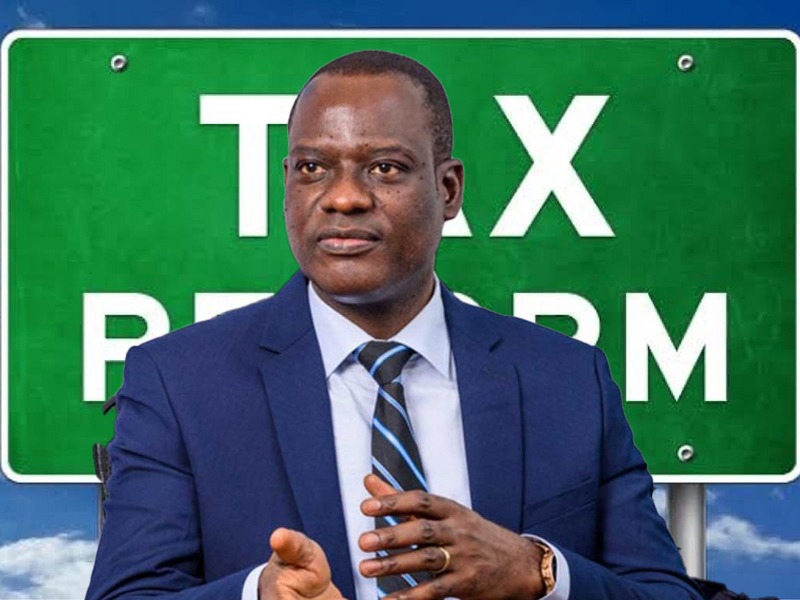Nigeria could have attained a $1 trillion economy if the nation had embraced its current fiscal and tax reform agenda a decade earlier, according to Taiwo Oyedele, Chairman of the Presidential Fiscal Policy and Tax Reforms Committee.
Speaking yesterday at PwC’s ‘Executive Summit on Nigeria’s Tax Reform’ in Lagos, Oyedele stressed that past economic mismanagement, particularly concerning exchange rates, had severely hampered the country’s progress.
Oyedele contended that without the bold reforms initiated by President Bola Tinubu’s administration in the past two years, Nigeria was on a perilous trajectory towards economic collapse, resembling nations like Zimbabwe and Venezuela.
READ ALSO: Tax c’ttee consulted govs, but they cancelled meetings – Oyedele
He illustrated this by stating that a continued fuel subsidy regime would have driven the price of Premium Motor Spirit (PMS) to N10,000 per litre, rendering it unaffordable.
“If some of these reforms done in the past two years ago were implemented, I tell you authoritatively that Nigeria’s $1 trillion economy is guaranteed and the price of PMS will be under N300 per litre because the foreign rate will be under N300 against the dollar,” Oyedele said.
He presented an analysis comparing Nigeria’s balance of payments with those of Kenya and South Africa over the last decade, revealing that the Naira had depreciated six and a half times more than the Kenyan Shilling and South African Rand.
“If only we had maintained that level of stability like those two other countries, Nigeria would be a $1 trillion economy. What that means is that the size of the middle class will probably be 10 times what it is and every single investor will take us seriously,” he emphasised.
Highlighting the nation’s precarious fiscal position prior to the reforms, Oyedele disclosed that an alarming 97% of the federal government’s revenue was consumed by debt servicing, with a tax-to-GDP ratio standing below 10%.
He characterised Tinubu’s tax reforms as the most significant and impactful since Nigeria’s independence, noting that countries like South Africa and Rwanda had significantly outpaced Nigeria in revenue generation.
Despite past challenges, Oyedele expressed optimism, stating that Nigeria possesses the requisite human capacity, knowledge, and skills, having finally found the ‘political will’ necessary for progress.
He admitted the reforms have been ‘painful’ but are now beginning to yield positive macroeconomic results.
He cited a declining budget deficit, increased spending on infrastructure, a rise in the tax-to-GDP ratio to 13.5% within two years of Tinubu’s tenure, and a reduction in debt service to under 50% from the previous 97 percent.
“We no longer print money to spend. Rather, we pay down half of the Ways & Means that the past administration printed,” he added.
Oyedele clarified that the tax reform’s primary objective extends beyond mere revenue generation, noting that improved tax collection is a natural consequence of heightened economic activity.
He also challenged the long-held notion regarding higher exemption thresholds for small businesses, suggesting that in unequal societies like Nigeria, a disproportionately small percentage of the population accounts for the majority of tax contributions.
Looking ahead, Oyedele stated that the planned tax reforms, set to commence in January 2026, are designed to accelerate economic activity, benefiting businesses, households, individuals, and the government alike.
“We can build a prosperous Nigeria together. I can tell you, from what I have seen, that better days are ahead of us,” he said.
READ ALSO: People cursed me, my family over tax reform bills – Oyedele
Earlier at the summit, Sam Adu, Regional Senior Partner for PwC West Market Area, praised the 2025 Tax Act as a monumental overhaul of Nigeria’s tax ecosystem, potentially the most ambitious globally in decades.
Adu stressed that the reforms aim to foster a fairer, more transparent, and growth-oriented tax system for both businesses and individuals, aligning with global trends towards ‘smarter taxation’ driven by technology, sustainability, cross-border cooperation, and geopolitics.



